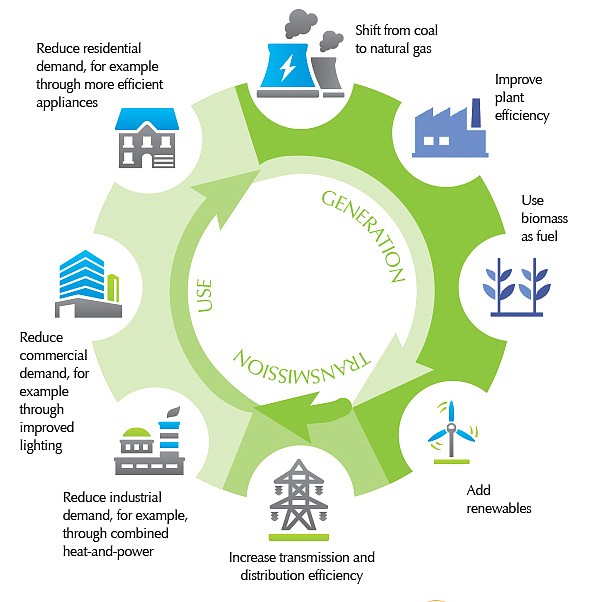As a Tennessee business owner, I understand that clean, renewable sources of energy are essential to the short- and long-term sustainability of our communities. It is reasonable and feasible to envision an economy in which energy is abundant, clean and delivered in ways that foster economic growth without compromising either our environment or public health.
The Clean Power Plan proposed by EPA is good for Tennessee. Robert Martineau, our commissioner of Environment and Conservation, released for public comment last December his department's views on the draft standards proposed for our state. Although the science and engineering issues are technical, the document is thorough and, I believe, a well-balanced response.
A snapshot of the national goal is a 30 percent reduction by 2030 in emissions of carbon dioxide (a greenhouse gas) from utility power plants. Each state has a specific target customized to its unique location and circumstances.
Since 2005 Tennessee has made significant strides toward meeting EPA's proposed carbon reduction goals, positioning our state to become a leader in the emerging clean energy economy. When the Tennessee Valley Authority recently presented its quarterly financial results, CEO Bill Johnson remarked that TVA is already in "good shape based on the current rule."
A federal entity, TVA has been moving forward on compliance rather than contesting the EPA's Clean Power rule set to take effect in summer 2015. By its charter the nation's largest public power generator is expected to take such a leadership role.
Tennessee has a parallel opportunity to advance its state interests by supporting objective carbon emission standards that will improve public health and create jobs.
Later this year TVA will release its updated Integrated Resource Plan. Reflecting the consensus views of a broadly representative group of advisors, the strategy is expected to emphasize low-carbon energy choices -- such as energy efficiency, renewable energy, natural gas, and nuclear power -- and to lessen the utility's historic reliance on coal (no matter where it is mined or how it is labeled).
While these low and zero-carbon energy sources are unquestionably good for public health and the environment, TVA must ultimately base its energy investments on the bottom line, something that businesses like mine must do every day. Likewise, our state can strengthen its own economic climate by taking advantage of the new opportunities created by EPA's Clean Power Plan, especially those in the growing renewable energy and energy efficiency sectors.
If Tennessee wisely adopts EPA's goals -- which TVA already is implementing -- then TVA's results will be credited to Tennessee's compliance scorecard. Importantly, Tennessee will have the authority to monitor its own track record, including TVA's performance. In our work, we have noted that industries switching to cleaner energy sources can reduce their electricity costs from 15 percent to 60 percent. These cost savings are of course recurring and translate into more competitive products, increased sales and more jobs.
If Tennessee chooses to work with rather than oppose EPA's plan, residential customers will have similar opportunities to adopt these energy-smart technologies at home, resulting in greater disposable family income and more money that recirculates into the local economy.
Much of the Tennessee Valley's electricity grid was designed and built decades ago. Yet technologies in energy efficiency, new power generation, transmission and system reliability have been improving dramatically. Let's capitalize on these advances to manage electrical base loads, reduce airborne pollutants, conserve water used in power plant cooling and improve public health. We may not have unanimity on the various factors causing global climate change; yet both state and national public opinion surveys show widespread support for cleaner power sources, conservation of natural resources and smarter use of energy.
In the past, we have come together in a nonpartisan manner to enact such national standards and market-based programs in acid rain, lead-safe certification and safe drinking water. Can we work as constructively this year to adopt the goals of EPA's Clean Power Plan -- a sensible public health regulation that offers Tennesseans a path to a healthier, cleaner, stronger economy?
